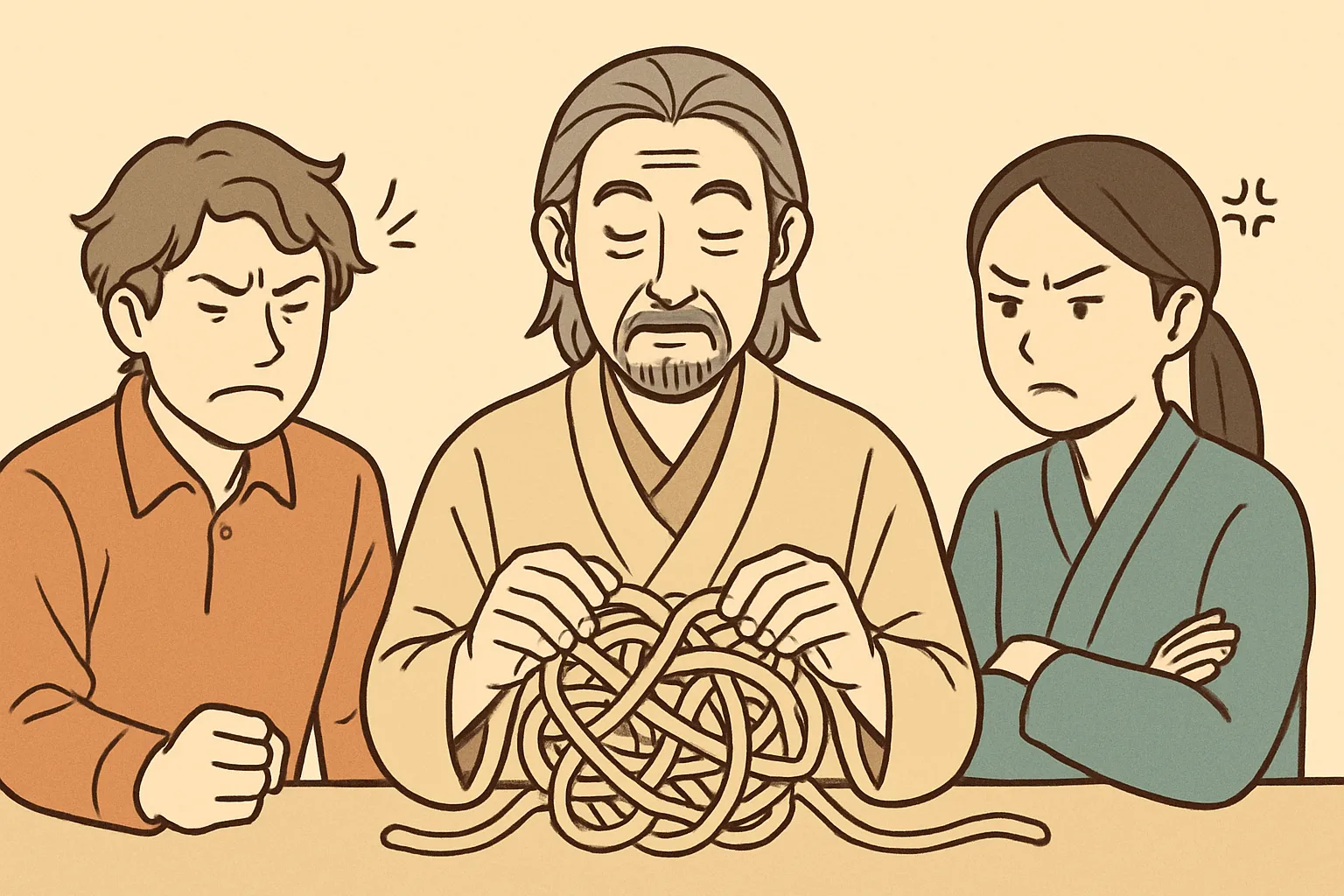Is Freedom Dizzying? Deep Korean Talk on Anxiety
Introduction
Hello! This is [Daily Hangeul], here to upgrade your Korean skills to a professional level! 🌟
Today, we are diving into a slightly deeper but incredibly fascinating topic: Existentialism. specifically, Søren Kierkegaard’s concept of “The Dizziness of Freedom.”
You might ask, “Why philosophy?” Well, recently in Korea, philosophy books (like those by Schopenhauer and Nietzsche) have become surprising bestsellers. Many Koreans, especially the younger generation facing endless choices and competition, are turning to these deep questions to find peace.
If you want to discuss life, career paths, or modern anxiety with your Korean colleagues or friends on a deeper level, this lesson is for you. Let’s explore how to express the “dizziness” that comes with absolute freedom! 🧠✨
Key Expressions
Here are 3 advanced expressions to help you discuss existentialism and the human condition.
1. 불안 (Anxiety / Angst)
- Pronunciation: [Buran]
- Meaning: Anxiety (specifically existential dread in this context)
- Detailed Explanation: While this can mean simple worry, in a philosophical context (and C1 level discussions), 불안 refers to the existential angst caused by the freedom to choose. It’s not just being nervous about a test; it’s the feeling that anything is possible, and that is terrifying.
- 💡 Pronunciation Tip:
- The ㄹ (l/r) in the ‘batchim’ (final consonant) of 불 flows into the empty consonant ‘ㅇ’ of 안. So, it connects smoothly like [bu-ran]. Don’t chop it like “Bul-An.”
2. 현기증 (Dizziness / Vertigo)
- Pronunciation: [Hyeongijeung]
- Meaning: Dizziness, Vertigo
- Detailed Explanation: Kierkegaard famously described anxiety as the “dizziness of freedom” (자유의 현기증). You can use this metaphorically when you feel overwhelmed by too many options in life or work.
- 💡 Pronunciation Tip:
- Pay attention to 기 (gi). It is a soft ‘g’, not a hard ‘k’.
- 증 (jeung) requires a relaxed jaw.
3. 무한한 가능성 (Infinite Possibility)
- Pronunciation: [Muhanhan ganeungseong]
- Meaning: Infinite possibility
- Detailed Explanation: This sounds positive, right? But in this context, it represents the abyss (심연). Standing before infinite possibilities is what causes the dizziness. It is a formal phrase often used in lectures, reports, or serious discussions.
- 💡 Pronunciation Tip:
- H-weakening: In 무한한 (Muhanhan), the ‘h’ sounds are often weak in fast speech. It might sound closer to [Mu-a-nan] or [Mu-han-nan] due to the influence of the ‘n’ batchim.
- Nasalization: The ‘ㄴ’ flows throughout the phrase. Keep your airflow nasal!
Real-Life Dialogue
Let’s see how these words are used in a conversation between two colleagues, Minji and Mark, discussing their career paths over coffee.
(Context: Minji is thinking about quitting her stable job to start a business.)
- Minji: 요즘 퇴사를 고민 중인데, 막상 자유가 주어진다고 생각하니까 너무 무서워.
(I’m thinking about quitting these days, but the thought of actually having freedom is terrifying.) - Mark: 키르케고르가 말했잖아. 불안은 자유의 현기증이라고.
(You know what Kierkegaard said. Anxiety is the dizziness of freedom.) - Minji: 와, 그 말이 딱 맞네. 선택지가 너무 많아서 어지러운 기분이야.
(Wow, that’s exactly it. I feel dizzy because there are too many choices.) - Mark: 그 무한한 가능성 때문에 힘든 거지만, 그게 또 살아있다는 증거 아닐까?
(It’s hard because of that infinite possibility, but isn’t that also proof that you’re alive?)
Culture Tip & Trend Analysis: The “Philosophy Craze” in Korea
Why are we learning this today? Because talking about “mental exhaustion” and “finding meaning” is a huge trend in Korea right now!
- The “God-saeng” (갓생) vs. Burnout:
Korean society is highly competitive. The trend of living a diligent “God-saeng” (God + Life) has led to severe burnout for many. Consequently, young Koreans are flocking to bookstores to buy philosophy books to understand why they are suffering. - Using “Humanities” Language:
Using terms like 자유의 현기증 (dizziness of freedom) or 존재의 불안 (existential anxiety) instead of just saying “I’m stressed” (스트레스 받아) makes you sound very intellectual and deep. It shows you understand the nuance of the emotion. - MBTI and Self-Analysis:
Koreans love analyzing themselves (like with MBTI). Connecting philosophy to one’s personality is a great conversation starter. You can say, “I feel this dizziness because I’m an ‘N’ (Intuitive) type who imagines too many possibilities!”
Conclusion & Practice
Today, we explored the deep connection between freedom (자유) and anxiety (불안). As an advanced learner, being able to express these complex feelings will help you connect deeply with Koreans who are navigating modern life.
📝 Mini Quiz:
Fill in the blank to complete the sentence!
“선택할 수 있는 것이 너무 많아서 생기는 두려움을 키르케고르는 ‘자유의 ________’이라고 불렀어요.”
(Kierkegaard called the fear arising from having too many choices the ‘________ of freedom’.)
- 불안 (Anxiety)
- 현기증 (Dizziness)
- 가능성 (Possibility)
Answer: (Check the comment section for the answer!)
Have you ever felt the “Dizziness of Freedom”? Share your experience in Korean in the comments below!
See you in the next lesson! 👋






